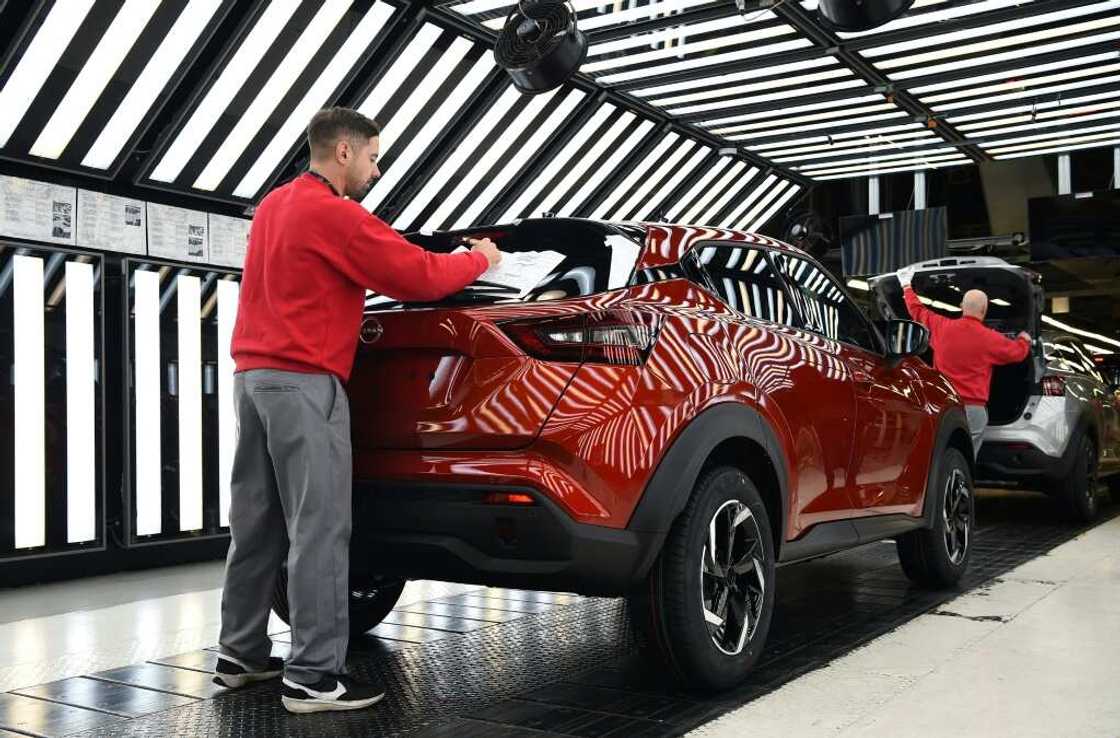EU proposes three-year delay on UK electric car tariffs

Source: AFP
Brussels proposed Wednesday a three-year delay on tariffs on the sale of electric vehicles between Britain and the EU that was meant to kick in from January, in a major reversal of its previous position.
The European Commission said it now wants a one-off extension, until December 31, 2026, after the EU automotive industry raised concerns about the massive costs that would arise from a post-Brexit 10-percent tariff.
The commission's extension proposal must formally be approved by the EU member states. EU leaders are to hold a regular summit in Brussels next week.
The commission had initially strongly opposed such an extension, despite industry's pleas, requests from the British government and calls for pragmatism by EU lawmakers.
Its extension proposal included wording designed to make it legally impossible to put off tariffs beyond the December 2026 date.
"Today's decision means that we skip an intermediate phase of somewhat strict rules of origin that would have applied from 2024 until the end of 2026," Commission Vice President Maros Sefcovic said.
PAY ATTENTION: Сheck out news that is picked exactly for YOU ➡️ click on “Recommended for you” and enjoy!
"This removes the threat of tariffs on export of EU electric vehicles to the UK and vice versa on 1st January 2024."
The change of stance was needed because of "circumstances not foreseen" when an EU-UK agreement regulating post-Brexit trade and ties was signed in 2020, Sefcovic said.
He cited higher energy prices spurred by Russia's full-scale invasion of Ukraine last year, high inflation, and big subsidies China and the United States deploy to boost their electric-vehicle industries.
The European Automobile Manufacturers' Associations (ACEA) welcomed the commission's move and urged EU countries to endorse it.
The tariffs, ACEA said, would have cost the EU vehicle makers it represents 4.3 billion euros ($4.6 billion) over the next three years and caused them to lose market share to non-European competitors.
'Cannot be repeated'
The European Union is particularly concerned about potentially unfair competition from cheaper Chinese electric vehicles. In October it formally launched an investigation into Beijing's subsidies for car manufacturers.
Commission chief Ursula von der Leyen accused China in September of keeping the cost of Chinese electric cars "artificially low by huge state subsidies".
Sefcovic said the commission's proposal "supports the competitiveness of our industry and protect jobs in the European Union" and "it's absolutely clear that this one-off extension cannot be repeated nor prolonged".
Britain formally left the European Union in January 2020 then, during a transition period, sealed the post-Brexit free-trade agreement with the bloc which came into effect in 2021.
Under that deal, tariffs were to start on January 1, 2024, on vehicles that do not have at least 45 percent UK- or EU-made content in them, and with batteries that are at least 50-60 percent sourced from each of those territories, under "rules of origin".
Along with the extension proposal, the commission announced additional funding of up to three billion euros to boost the EU's battery-manufacturing industry.
The EU's trade commissioner, Valdis Dombrovskis, said the proposal "provides much-needed predictability and stability to EU car- and battery-makers at a time of fierce global competitive pressure".
New feature: Сheck out news that is picked for YOU ➡️ click on “Recommended for you” and enjoy!
Source: AFP




